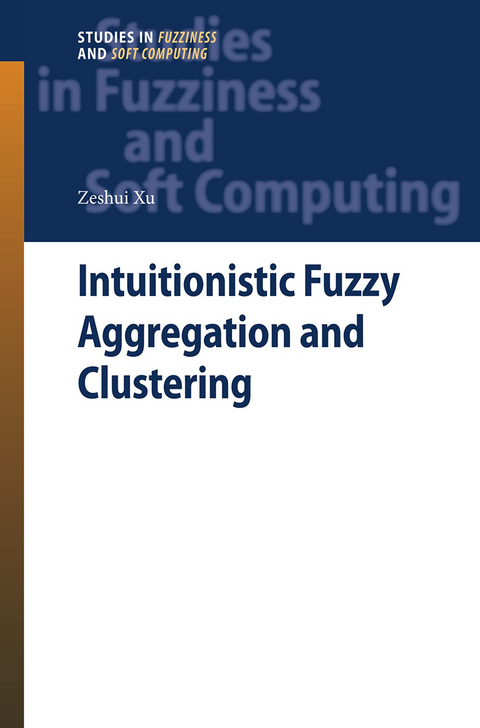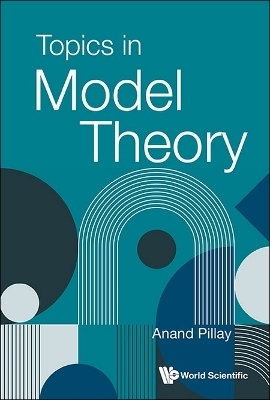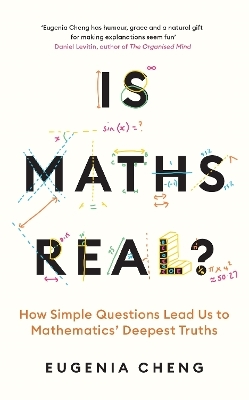
Intuitionistic Fuzzy Aggregation and Clustering
Springer Berlin (Verlag)
978-3-642-43612-3 (ISBN)
This book offers a systematic introduction to the clustering algorithms for intuitionistic fuzzy values, the latest research results in intuitionistic fuzzy aggregation techniques, the extended results in interval-valued intuitionistic fuzzy environments, and their applications in multi-attribute decision making, such as supply chain management, military system performance evaluation, project management, venture capital, information system selection, building materials classification, and operational plan assessment, etc.
Zeshui Xu received the PhD degree in management science and engineering from Southeast University, Nanjing, China, in 2003. From April 2003 to May 2005, he was a Postdoctoral Researcher with the School of Economics and Management, Southeast University. From October 2005 to December 2007, he was a Postdoctoral Researcher with the School of Economics and Management, Tsinghua University, Beijing, China. From November 2008 to February 2009, February 2010 to May 2010, February 2011 to May 2011, and on August 2009, he was a Visiting Research Scholar at the Chinese University of Hong Kong, Shatin, N.T., Hong Kong. He is currently an IEEE Senior Member, Reviewer of Mathematical Reviews of American Mathematical Society, and an Adjunct Professor with the Antai School of Economic and Management, Shanghai Jiaotong University, Shanghai, China; an Adjunct Professor with the School of Economics and Management, Southeast University Nanjing, Jiangsu, China. He is also currently a Chair Professor with the Sciences Institute, PLA University of Science and Technology, Nanjing, China. He serves on the Editorial Boards of Information: An International Journal, International Journal of Applied Management Science, International Journal of Data Analysis Techniques and Strategies, System Engineering–Theory and Practice, Journal of Systems Engineering, and Fuzzy Systems and Mathematics. He has authored three books, and has contributed more than 300 journal articles to professional journals, including IEEE Transactions on Fuzzy Systems, IEEE Transactions on Systems, Man, and Cybernetics, Information Sciences, European Journal of Operational Research, Omega, Decision Support Systems, Journal of Optimization Theory and Applications, Fuzzy Sets and Systems, Group Decision and Negotiation, International Journal of Approximate reasoning, Information Fusion, International Journal of Intelligent Systems, Computers & Industrial Engineering, Expert Systems With Applications, Soft Computing, Applied Soft Computing, Knowledge-Based Systems, International Journal of General Systems, Fuzzy Optimization and Decision Making, International Journal of Uncertainty, Fuzziness and Knowledge-Based Systems, and International Journal of Information Technology and Decision Making, etc. His current research interests include information fusion, group decision making, computing with words, intuitionistic fuzzy sets, and aggregation operators.
1 Intuitionistic Fuzzy Aggregation Techniques.-1.1 Rankings of Intuitionistic Fuzzy Values.-1.1.1 Intuitionistic Fuzzy Values.-1.1.2 Methods for Ranking IFVs.-1.1.2.1 The Method for Ranking IFVs by Using the Score Function.-1.2.1.2 The Method for Ranking IFVs by Using the Positive Ideal Point.-1.1.2.3 The Method for Ranking IFVs by Using the Intuitionistic Fuzzy Point Operators.-1.1.2.4 The Method for Ranking IFVs by Using the Similarity Measure and the Accuracy Degree.-1.1.3 The Application of Ranking IFVs Using the Similarity Measure and the Accuracy Degree in Multi-attribute Decision Making.-1.2 Intuitionistic Fuzzy Power Aggregation Operators.-1.2.1 Power Aggregation Operatores.-1.2.2 Some Operational Laws of IFVs.-1.2.3 Power Aggregation Operators for IFVs.-1.2.4 Approaches to Multi-attribute Group Decision Making with Intuitionistic Fuzzy Information.-1.2.5 Practical Example.-1.3 Interval-valued Intuitionistic Fuzzy Power Aggregation Operators.-1.3.1 Interval-valued Intuitionistic Fuzzy Values .-1.3.2 Power Aggregation Operators for IVIFVs.-1.3.3 Approaches to Multi-attribute Group Decision Making with Interval-valued Intuitionistic Fuzzy Information.-1.4 Intuitionistic Fuzzy Geometric Bonferroni Means.-1.4.1 Geometric Bonferroni Mean.-1.4.2 Intuitionistic Fuzzy Geometric Bonferroni Mean.-1.4.3 The Weighted Intuitionistic Fuzzy Geometric Bonferroni Mean and Its Application in Multi-attribute Decision Making.-1.5 Generalized Intuitionistic Fuzzy Bonferroni Means.-1.5.1 Generalized Bonferroni Means.-1.5.2 Generalized Intuitionistic Fuzzy Weighted Bonferroni Mean.-1.5.3 Generalized Intuitionistic Fuzzy Weighted Bonferroni Geometric Mean.-1.6 Intuitionistic Fuzzy Aggregation Operators Based on Archimedean t-conorm and t-norm.-1.6.1 Intuitionistic Fuzzy Operational Laws Based on t-conorm and t-norm.-1.6.2 Intuitionistic Fuzzy Aggregation Operators Based on Archimedean t-conorm and t-norm.-1.6.3 An Approach to Intuitionistic Fuzzy Multi-attribute DecisionMaking.-1.7 Generalized Intuitionistic Fuzzy Aggregation Operators Based on Hamacher t-conorm and t-norm.-1.8 Point Operators for Aggregation IFVs.-1.9 Generalized Point Operators for Aggregating IFVs.-2 Intuitionistic Fuzzy Clustering Algorithms.-2.1Clustering Algorithms Based on Intuitionistic Fuzzy Similarity Matrices.-2.2 Clustering Algorithms Based on Association Matrices.-2.3 Intuitionistic Fuzzy Hierarchical Clustering Algorithms.-2.4 Intuitionistic Fuzzy Orthogonal Clustering Algorithm.-2.5 Intuitionistic Fuzzy C-Means Clustering Algorithms.-2.6 Intuitionistic Fuzzy MST Clustering Algorithm.-2.7 Intuitionistic Fuzzy Clustering Algorithm Based on Boole Matrix and Association Measure.-2.7.1 Intuitionistic Fuzzy Association Measures.-2.7.2 Intuitionistic Fuzzy Clustering Algorithm.-2.7.3 Numerical Example.-2.7.4 Interval-Valued Intuitionistic Fuzzy Clustering Algorithm.-2.8 A Netting Method for Clustering Intuitionistic Fuzzy Information.-2.8.1 A New Approach to Constructing Intuitionistic Fuzzy Similiarity Matrix.-2.8.2 A Netting Clustering Method.-2.8.3 Illustrative Examples.-2.9 Direct Cluster Analysis Based on Intuitionistic Fuzzy Implication.-2.9.1 The Intuitionistic Fuzzy Implication Operator and Intuitionistic Fuzzy Products.-2.9.1 The Application of Two Intuitionistic Fuzzy Products.-2.9.2 The Application of Two Intuitionistic Fuzzy Products.-2.9.3 The Application of the Intuitionistic Fuzzy Triangle Products.-2.9.4 The Application of the Intuitionistic Square Product.-2.9.5 A Direct Intuitionistic Fuzzy Cluster Analysis Method.-References.
| Erscheint lt. Verlag | 25.6.2015 |
|---|---|
| Reihe/Serie | Studies in Fuzziness and Soft Computing |
| Zusatzinfo | IX, 278 p. |
| Verlagsort | Berlin |
| Sprache | englisch |
| Maße | 155 x 235 mm |
| Gewicht | 444 g |
| Themenwelt | Mathematik / Informatik ► Mathematik ► Logik / Mengenlehre |
| Wirtschaft ► Allgemeines / Lexika | |
| Wirtschaft ► Betriebswirtschaft / Management ► Marketing / Vertrieb | |
| Wirtschaft ► Betriebswirtschaft / Management ► Unternehmensführung / Management | |
| Schlagworte | aggregation operator • clustering algorithm • Engineering • interactive decision making • Intuitionistic fuzzy set • intuitionistic preference relation • Marketing • Operation Research/Decision Theory |
| ISBN-10 | 3-642-43612-9 / 3642436129 |
| ISBN-13 | 978-3-642-43612-3 / 9783642436123 |
| Zustand | Neuware |
| Haben Sie eine Frage zum Produkt? |
aus dem Bereich


